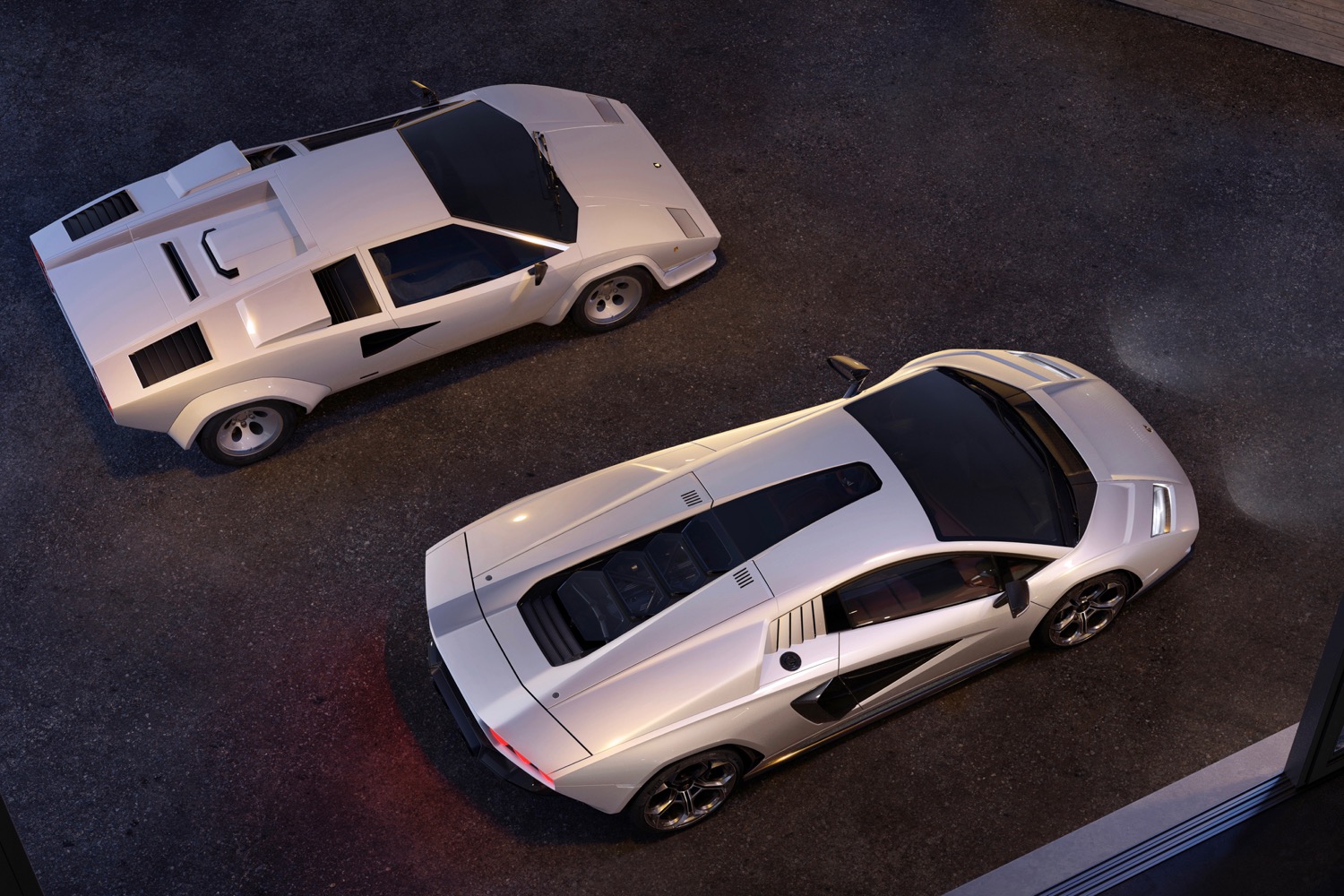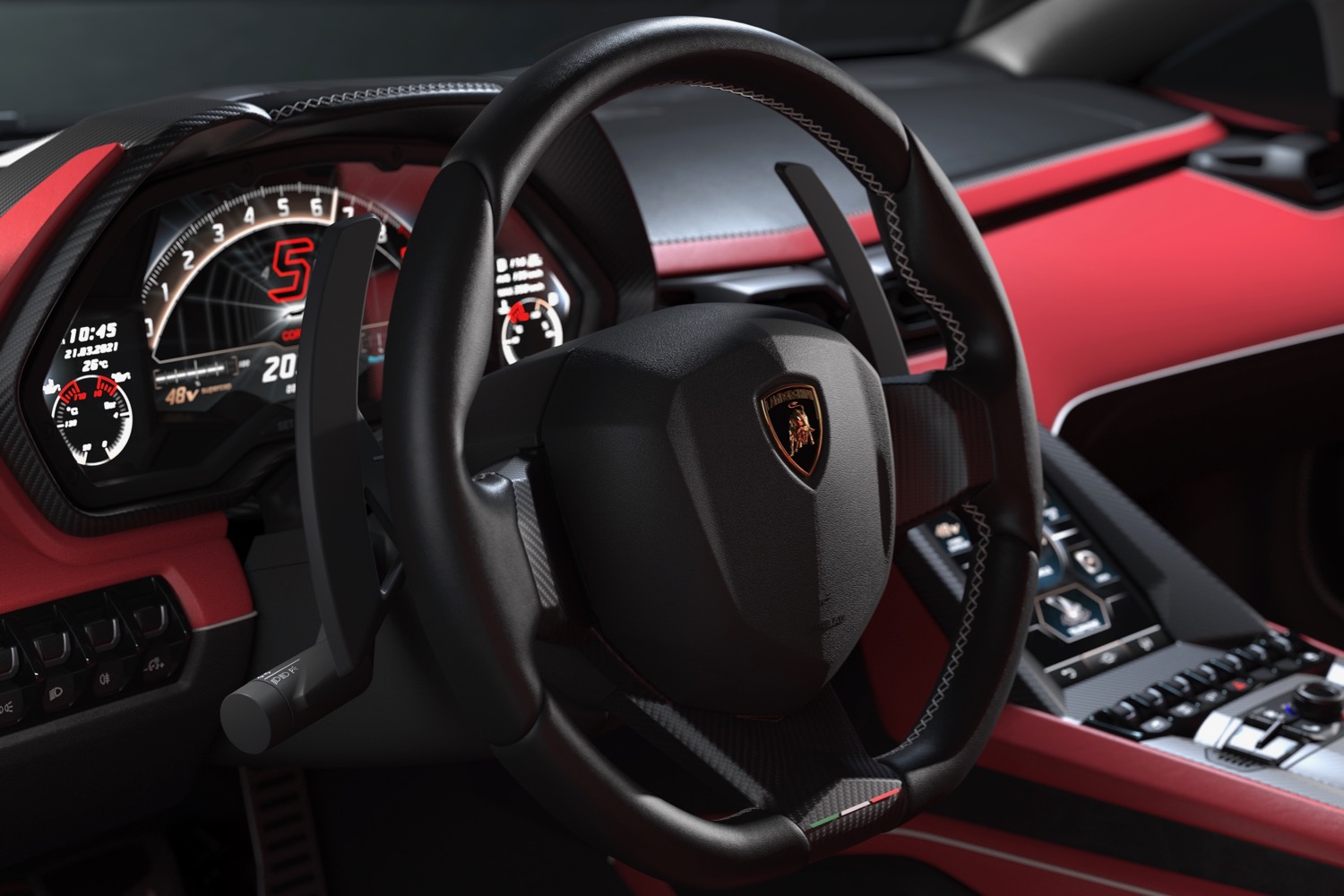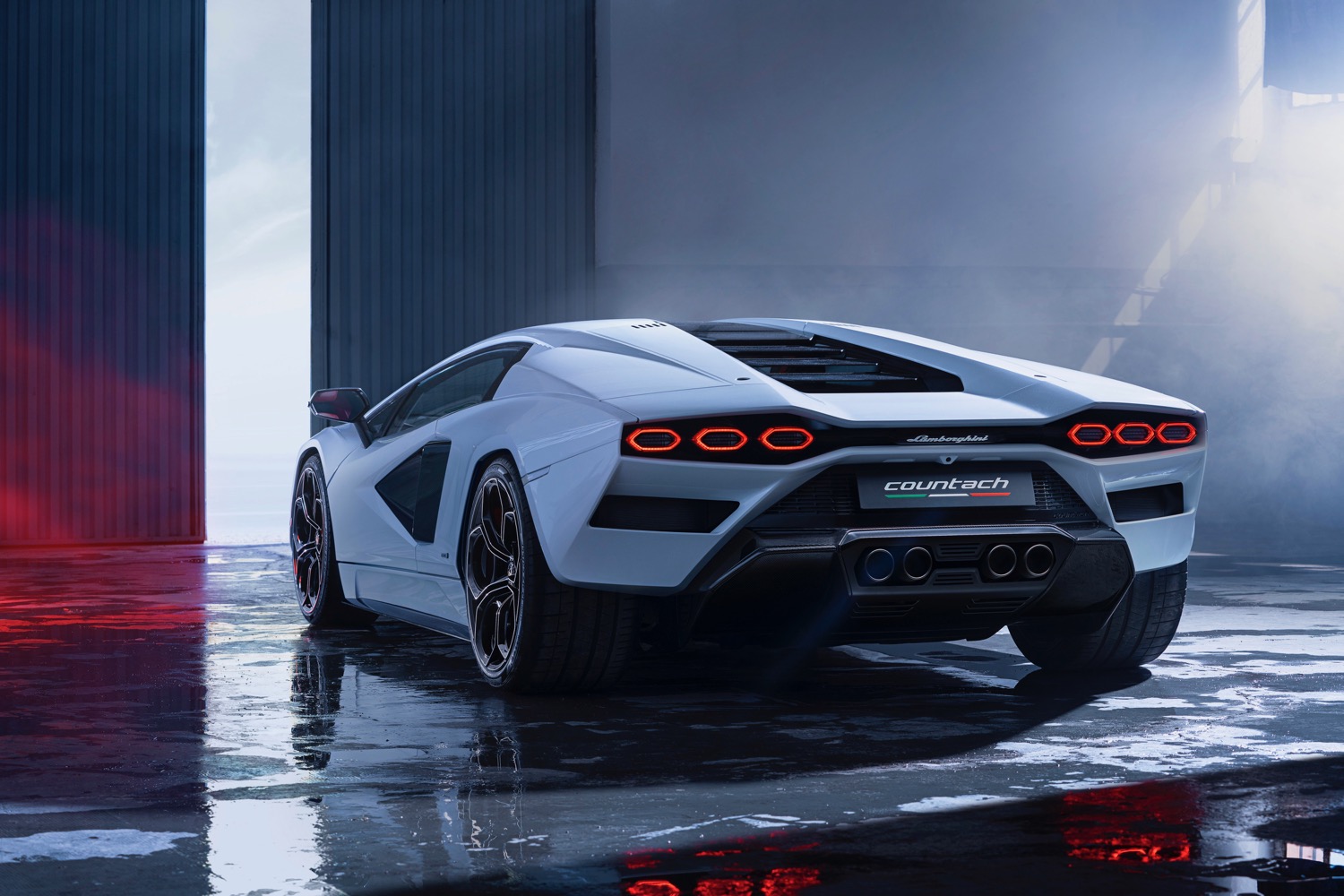With its latest supercar, Lamborghini is going back to the future. The Lamborghini Countach LPI 800-4 revives a name from the 1970s but with a modern hybrid powertrain. So while the new Countach references the past, it’s also a hint at what future Lamborghini models will be like, according to the company.
The original Lamborghini Countach, which turns 50 this year, is one of the greatest supercars of all time. Its wedge shape and scissor doors set a design template that Lamborghini is still using today and that many other supercar builders copied. The Countach was literally the poster child for supercars, immortalized on countless bedroom wall posters of young car enthusiasts.
Bringing back the Countach was guaranteed to be a big attention draw, and Lamborghini used the opportunity to show off its latest hybrid tech. The automaker is getting more serious about electrification and likely wants to get customers used to the idea of a hybrid Lamborghini.
Design
The original Countach was in production for just over 20 years, and Lamborghini tried to incorporate design elements from that entire timespan into the new version. Details like thin headlights, an air intake at the base of the windshield, and vents just behind the side windows tie the Countach LPI 800-4 to the first Countach prototype, which debuted at the 1971 Geneva Motor Show. However, the large side air intake and boxy wheel arches are more reminiscent of later Countach models.
Lamborghini didn’t go too crazy, however. The Countach LPI 800-4 doesn’t have the fender flares, raised side air intakes, or large rear spoiler the original Countach accumulated as it aged. The automaker said it was going for a cleaner look, and some of those add-ons, such as the spoiler, were purely cosmetic anyway. Designers did keep the scissor doors, which were introduced on the original Countach and have been a Lamborghini signature every since.
Tech
The new Countach uses the chassis from a Lamborghini Aventador, but with a hybrid powertrain similar to the one used in the limited-edition Lamborghini Sián FKP-37, which debuted in 2019. Lamborghini’s traditional 6.5-liter V12 engine gets assistance from an electric motor, albeit only up to 81 mph, according to Lamborghini. The motor is mounted directly to Lambo’s seven-speed Independent Shifting Rod (ISR) transmission, which in turn drives all four wheels.
Electricity for the motor is harvested with regenerative braking and stored in a supercapacitor rather than a conventional battery pack. Lamborghini claims this provides three times the power output of a battery pack of the same weight.
The infotainment system plays second fiddle to the hybrid powertrain. Lamborghini included an 8.4-inch touchscreen with Apple CarPlay, but not Android Auto.
Specs
The gasoline V12 and electric motor combine to produce 803 horsepower, which is where the “800” in the car’s name comes from. “LP” stands for “longitudinale posteriore,” referencing the positioning of the engine, “I” represents the hybrid system, and “4” stands for all-wheel drive.
Despite its carbon fiber chassis, the Countach LPI 800-4 is still portly. Lamborghini quotes a 3,516-pound curb weight, and that’s a dry weight without fluids onboard. The automaker also quotes a 43/57 front/rear weight distribution, slightly off the ideal 50/50.
Still, the new Countach is about as fast as one would expect an 803-hp car to be. Lamborghini says it will do zero to 62 mph in 2.8 seconds, zero to 124 mph in 8.6 seconds, and reach a 220.5 mph top speed. However, it’s worth noting that the zero-to-62-mph time is identical to the non-hybrid Lamborghini Aventador Ultimae coupe, which also has roughly the same top speed as the Countach.
Pricing
Lamborghini plans to build 112 copies of the new Countach, referencing the LP 112 codename used during the development of the original. Pricing is expected to be well into the seven-figure range, and production is scheduled to start in 2022.
Lamborghini is expected to introduce more hybrids over the next few years. A planned successor to the Aventador is expected to use a new V12 engine teamed with a more aggressive hybrid system than the one used in the Countach. However, it’s unclear if we’ll see an all-electric Lamborghini anytime soon.






